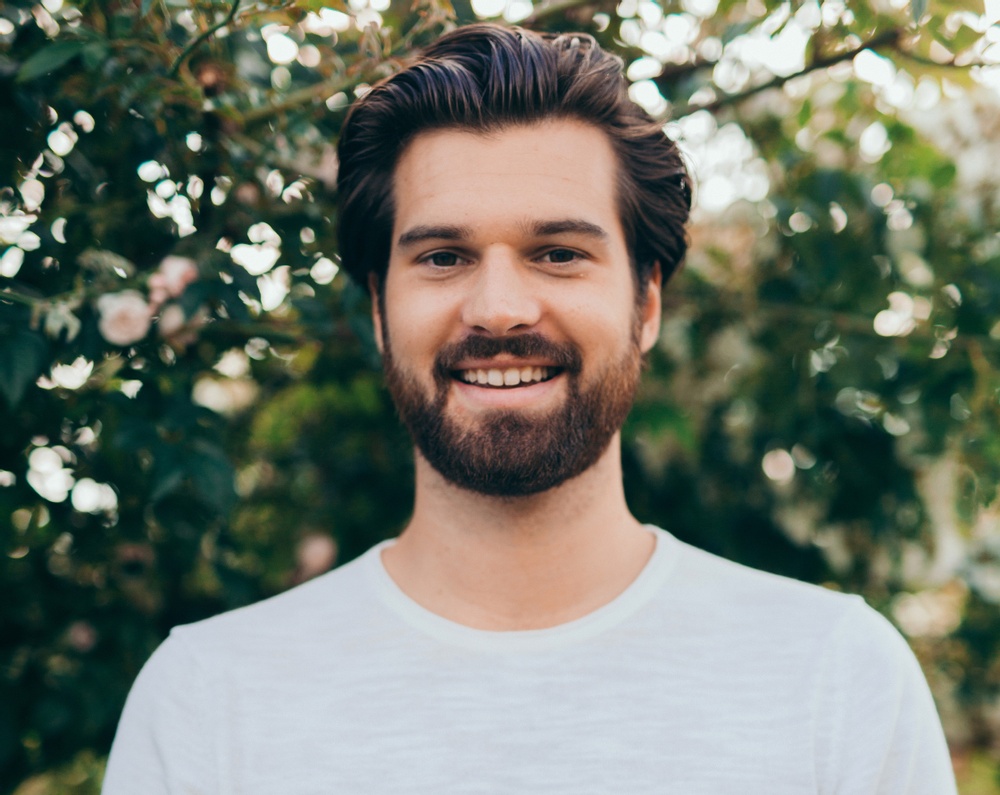SmiLe company Cirkulär develops next-gen climate-smart protein
 Eric Öste, CEO of Cirkulär
Eric Öste, CEO of CirkulärAward-winning startup Cirkulär is developing processes that use advanced biotechnology to produce proteins in bulk from biological residues, with minimal environmental impact. The first application is milk protein for use in cheese production. Cirkulär is a new member of SmiLe Incubator.
Cirkulär uses climate-smart biotechnology processes to produce proteins that normally come from the animal kingdom. The company will begin by focusing on cheese, a globally popular product that is also high on the list of foods in regard to emissions of carbon dioxide, a greenhouse gas. Significant levels of carbon dioxide are generated by large-scale livestock farming, animal feed production and cheese-making.
The company's contribution to solving the environmental problems is to produce the milk protein casein using a closed, antibiotic-free process based on fermentation with genetically modified microorganisms. The protein is identical to the casein found in cow milk, but it is produced by microorganisms instead of cows. Biological residues, such as residues from rapeseed oil pressing, comprise the raw materials.
“Our vision is to use our technology to produce various types of proteins in order to sharply reduce environmental impact. We've chosen to start with casein in order to achieve the greatest environmental benefit in the shortest time, given the magnitude of cheese consumption worldwide and the enormous volume of milk required for the production process – one kilogram of cheese requires ten liters of milk," says Eric Öste, co-founder and CEO of Cirkulär.
The quality of today's vegetable-based cheeses falls short compared with the product derived from milk. They usually do not contain casein, the most abundant protein found in milk, that has great impact on the taste and consistency of the cheese.
Circkulär has garnered recognition on several occasions, most recently winning a prize and a place in a European coaching program for startups sponsored by the innovation organization EIT Food. And in the past, the company has received awards from the Swedish Energy Agency, as well as from Vinnova, which has awarded several grants – most recently “Innovative Startup Step 1.”
Eric Öste and his co-founder Sebastian Carreno Correa have attracted cutting-edge expertise and are collaborating with researchers from both Lund University and Chalmers University of Technology. And now the company is developing further under the auspices of SmiLe.
“We are extremely pleased to be SmiLe Incubator members. We are particularly looking forward to having our business model challenged by SmiLe’s experienced coaches, and to broadening our network,” says Eric Öste.
“Cirkulär is a company of great interest with a focus on climate-smart technologies. It's exciting to help shepherd yet another innovation emerging from university-based biotechnology research onward toward commercialization – our coaches and our labs are ready for them, and our broad network can help them to achieve their goal faster," says Ebba Fåhraeus, CEO of SmiLe Incubator.
For more information, please contact: Ebba Fåhraeus, CEO of SmiLe Incubator, +46 (0)73 4000433, ebba@smileincubator.life
Additional facts:
The protein casein has many commercial uses. In addition to foods, the protein can be used to replace oil-based plastics, as capsules for slow-release medications and probiotics, and as an ingredient for cosmetics.
Currently, the production of one kilogram of cheese takes ten liters of milk.
Among foods, cheese ranks third – after lamb and beef production – when it comes to generating the greenhouse gas carbon dioxide.
Every kilogram of cheese produced results in 10 kilograms of carbon dioxide emissions. Almost half results from production of animal feed, and nearly the same amount comes from raising the animals to obtain the milk. Cheese production in itself releases 1.5 kilograms of carbon dioxide per kilogram of cheese.
Cows also emit large quantities of methane, a greenhouse gas that is about thirty times more potent than the same quantity of carbon dioxide.
Today, the level of greenhouse gases in the atmosphere is the highest it has been for at least 800,000 years.
In addition to greenhouse gas emissions, large-scale cattle farming contributes to both deforestation to produce feed and to increasing resistance to antibiotics.
About SmiLe Venture Hub – Pioneering Life Science and Foodtech Innovations
SmiLe Incubator is a life science business incubator based in Medicon Village in Lund, Sweden. SmiLe helps entrepreneurs commercialize their ideas. There are currently 25 companies in SmiLe which, together with alumni companies, have attracted more than EUR 460 million in venture capital to date since 2014. SmiLe offers excellent business coaching, a broad international network of contacts and a dynamic community, as well as well-equipped laboratories which is unique of its kind in Sweden. SmiLe is a non-profit organization and receives basic funding from Region Skåne, Lund Municipality, Lund University and Medicon Village. SmiLe´s sponsors are Agilent, Sparbanken Skåne, Awa, Høiberg, Prevas, Setterwalls, Zacco, Aqilion. SmiLe’s listed alumni companies have a market capitalization of EUR 1,3 billion (Q1 2021). www.smileincubator.life